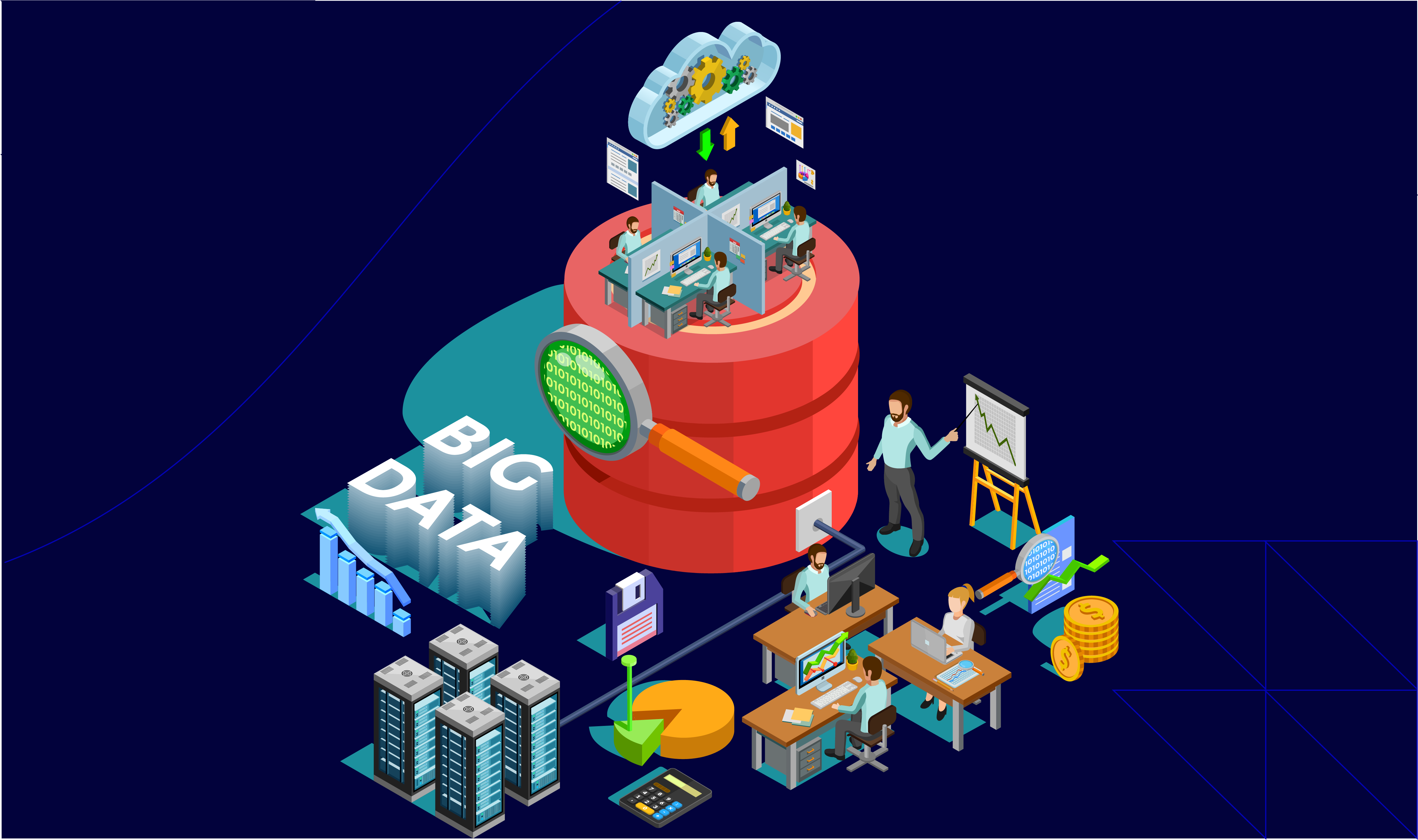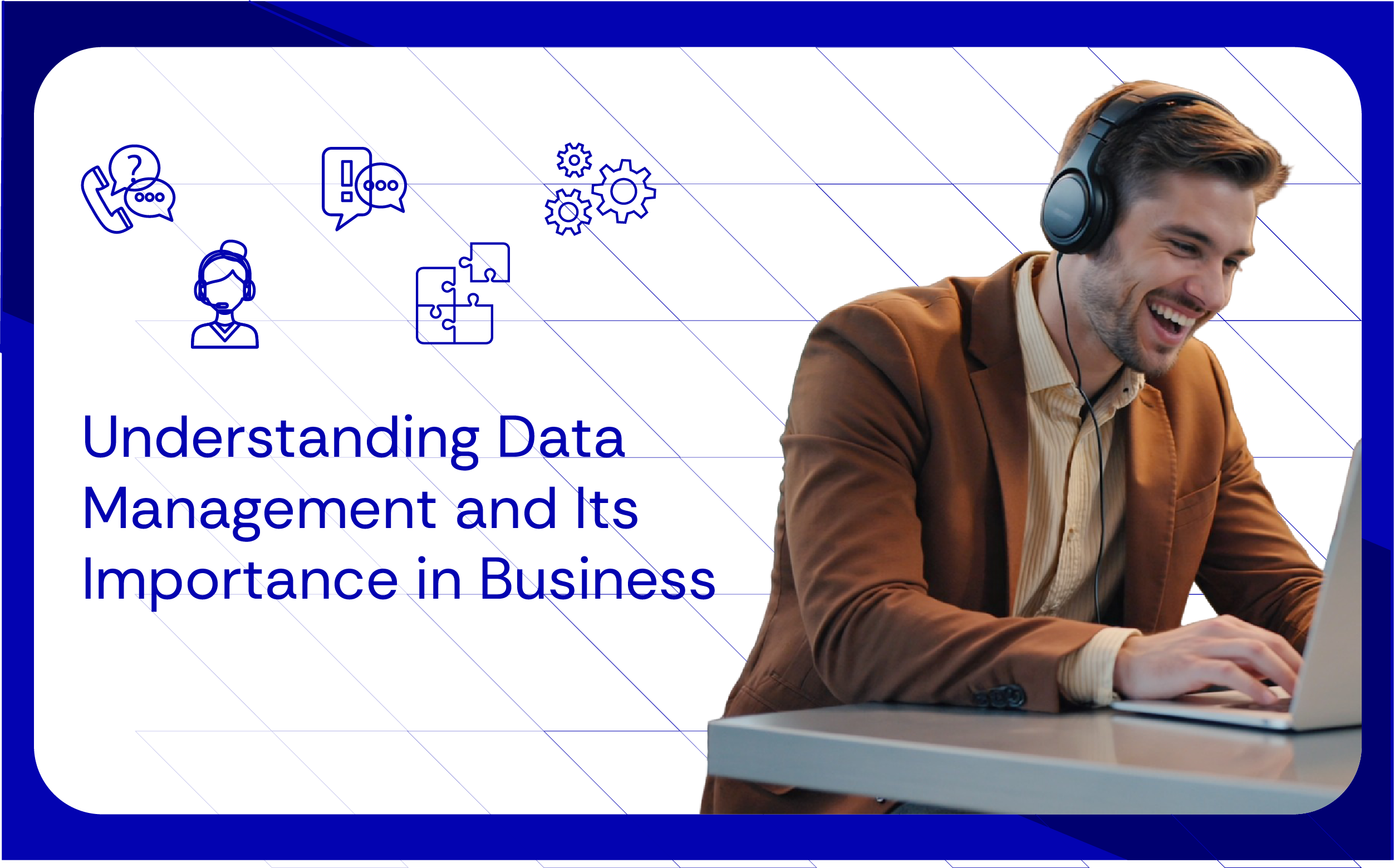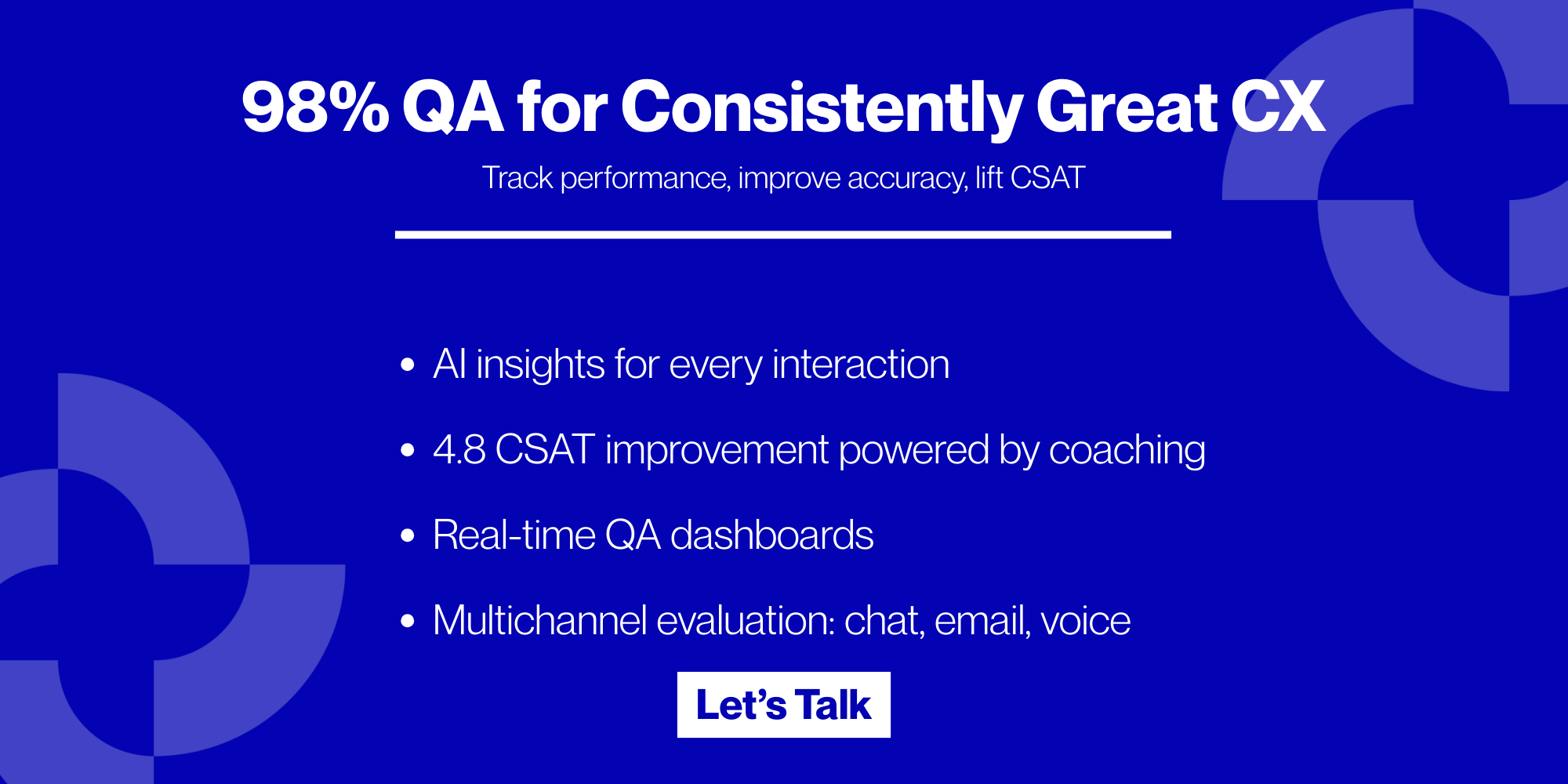Data management means collecting, storing, organising, and using your data correctly. It allows you to keep your data clean and easy to find. Also, such professional management promotes data safety and privacy, which minimizes the chances of breaches or leaks.
For consumer brands and D2C companies in the U.S., U.K. & Australia, especially those with customer support and customer experience teams, data management in 2025 is a competitive advantage. Whether you’re a VP, Director or Senior Manager at a business with 5+ employees and $5M+ in revenue, your ability to manage data impacts customer satisfaction, operational efficiency and long-term profitability.
For consumer brands and D2C companies in the U.S, U.K. and Australia, especially those with customer support and customer experience teams, data management in 2025 is not just a back-end function, it’s a competitive advantage. Whether you’re a VP, Director or Senior Manager at a business with 5+ employees and $5M+ in revenue. Your ability to organize and use data effectively directly impacts customer satisfaction, operational efficiency and profitability.
Nowadays, data is vital for every business, and in 2025, this importance will only grow. According to Harvard Business Review, organizations that make data backed decisions are 5% more productive and 6% more profitable than peers who don’t. That’s largely because data helps business owners like you to understand:
- How is your business doing?
- What do your customers want?
- In which areas can you scale operations?
But as your business grows, the volume of data you collect increases significantly. This becomes hard to manage for most organisations. That’s where data management comes in. It allows you to keep all information in one place so that you or your employees can access it easily when required.
If you want to save time, strengthen compliance and improve customer experiences, data management is essential. In this article, we’ll explain why data management is important for your business and outline benefits you can apply in 2025.
What is Data Management?

Businesses today use data from many sources (like websites, social media, payments, and customer service). Data management is the way your business handles this information. It covers how the data is:
- Collected
- Stored
- Organised
- Used
The ultimate goal of data management is to make sure the data is correct, easy to find, and protected. Deloitte reports that 7 out of 10 business leaders consider data analysis critical to business growth in 2025.
They see data analysis as a key part of:
- Planning Strategies: Using data to decide the direction of the business.
- Improving How the Business Runs: Finding better ways to use time, money, and resources.
- Creating Better Experiences for Customers: Understanding what customers like or don’t like, and making changes based on that.
Data Management vs. Data Governance
For most business owners, these two terms sound the same. However, both are different and cover different aspects:
| Aspects | Data Management | Data Governance |
| Meaning | It is about how the information is handled day to day. | It is the plan behind how that information should be handled. |
| Coverage | It refers to the tools and methods used to store and organise the data. | It refers to the rules a business sets to make sure the data is used in the right way. |
| Benefit | Good data management in 2025 can help you:
|
Data governance reduces risk by:
|
| Example | You hire a data management service provider who will store the data in the system. | Your business decides who is allowed to see customer data. |
Both functions are critical. Together, they allow growing consumer brands to keep information accurate, compliant and safe.
What Are the Main Parts of Data Management?

Below are some major parts of data managementmanage business data in 2025:
| Data Management Parts | Explanation |
| Data Collection | Getting the right data from your:
|
| Data Storage | Keeping your data in a safe place like a:
|
| Data Organisation | Sorting your data so it’s easy to understand and use |
| Data Protection | Making sure your data is safe from:
|
| Data Use | Using your data to run and grow your business |
When managed correctly, these parts ensure that every department, from customer support to marketing can access reliable insights.
What are the Benefits of Data Management in 2025?

For businesses in the U.S., U.K. & Australia, the real importance of data management lies in creating business impact. Recent studies show that the big data analytics market in India is expected to grow aggressively at the rate of 26% p.a. from 2019 to 2025. By the end of 2025, it is expected to be worth USD 16 billion.
This clearly shows that more and more Indian businesses are now using data analytics to grow their business and to go digital. But why is data management important for your business? Below are some major advantages of data management:
1. Better Decision-Making
Proper data management allows you to analyse:
- Customer preferences
- Market trends
- Problem areas in your work process (operational inefficiencies)
Such an analysis offers you valuable insights. By acting upon them, you can stay strong and compete in today’s cut-throat competition. This analysis provides insights that drive faster and smarter decisions which help leaders at VP and Director level remain competitive in saturated markets.
2. Following Government Rules
In India, there are new rules about how businesses must handle personal data, such as:
- The Personal Data Protection Bill
- SEBI’s Cloud Service Adoption Framework
If you do not follow these laws, your business can face fines or legal issues. Data management ensures that you follow these rules and remain compliant. Global regulations (like GDPR in the U.K. and EU, CCPA in the U.S. and Privacy Act in Australia) require businesses to manage customer data responsibly.
3. Adapting to Digital India
India is going digital. Programs like Digital India have encouraged more online businesses. This means more data is being created every day! By understanding the importance of data management in business, you can use this data to grow and innovate. Now, as a business owner, you can use this data to grow your business.
For example, by using tools like big data or artificial intelligence, you can understand your customers better or improve your services.
Sectors like telecom and online shopping are already doing this. Thus, data management lets you use digital tools and stay updated with the market. For customer support and experience teams, data management directly improves how agents resolve cases and personalize interactions.
4. Improving Daily Operations
Data management removes double work. Smart business data management can cut costs, save time and reduce errors, which is vital in a competitive industry. McKinsey research shows businesses that invest in modern data management can reduce costs by 30% while accelerating task completion by up to 90%.
This is highly important for businesses like manufacturing or delivery services, where time and cost matter. For example,
- Say you installed a new tool to manage inventory data properly.
- Now, you can avoid overstocking or shortages.
- This keeps your business running without delays.
5. Solving Local Problems
Currently, India faces unique challenges in terms of:
- Data quality
- Legacy systems
- Infrastructure gaps
Also, nowadays, many organisations are transitioning from manual to digital systems. These factors further increase the importance of data management. It allows business owners like you to overcome issues like:
- Incomplete datasets
- Inconsistent formats
- Incompatible systems
Through data management, you can keep your data clean, complete, and ready to use. It also helps when combining old data with new systems. For example, say you are transitioning to advanced technology. Now, data management ensures that nothing is lost or recorded incorrectly.
What are Some Common Data Management Issues?

To gain the most from data management, you, as a business owner, must compete with these challenges:
1. Data Complexity and Integration
Around 30% of Indian businesses say that handling complex data is a major problem. They often struggle to bring together data from different sources, like:
- Websites
- Software
- Customer records
They also find it hard to keep systems working in sync. When the data is incomplete or doesn’t match across departments, it causes mistakes, confusion, and waste of resources. This makes it hard for business owners to make clear decisions based on reliable information.
2. Regulatory Compliance
India has strict rules for data protection, like:
- The BIS 17428 standards
- The Personal Data Protection Bill
As a business owner, you must follow these rules, particularly when data is stored in other countries or used across regions. For companies that don’t follow the rules, the risk includes:
- Legal action
- Damage to their reputation
3. Data Security Concerns
Nowadays, many Indian Chief Information Officers (CIOs) are worried about data security. Some common problems they tackle daily are:
- Cyberattacks
- Data theft
- People accessing information without permission
Usually, a data breach can cause financial loss and harm the business’s name.
4. Transitioning to Digital Systems
Many Indian businesses are moving from manual systems (like paper files or spreadsheets) to digital systems. But this shift brings problems! Here, some common data management issues are:
- Finding duplicate records
- Fixing incomplete data
- Changing old software so it works with new tools
If this process is not managed properly, it can take a lot of time and money. It may also slow down daily business work. This is a common issue for small businesses trying to modernise.
5. Infrastructure Limitations
Proper data management requires adequate infrastructure. It leads to high costs for:
- Data storage
- Slow data access
- Running big data software
Such limited infrastructure affects the ability to analyse large datasets in real time. It also reduces operational efficiency and makes it harder to fully use tools like big data analytics.
6. Data Quality Issues
Indian businesses often deal with low-quality data. Generally, this includes:
- Incorrect or incomplete data
- Bad labelling
- Poor data handling rules
When you use such poor-quality data, the results from the analysis can be wrong. This leads to:
- Poor decisions
- Missed opportunities
- Loss of customers
These challenges are particularly critical for growing consumer brands who are scaling customer support and e-commerce operations.
Best Practices for Data Management

To make data work for your business, here are some tips:
- Keep all your data in one place.
- Use simple software to manage your data (like Excel, Google Sheets, or small business tools).
- Check your data often to make sure it’s correct.
- Make backups so you don’t lose anything.
- Set rules for who can see or change the data.
Alternatively, outsourcing to a partner like Atidiv gives you enterprise-level security, scalability, and analytics without overloading your internal teams. We at Atidiv offer a range of specialised data management services. Find the complete list here.
Struggling with Data Management? Let Atidiv Handle the Complexity for You!

Nowadays, most business owners are migrating to proper data management. This allows them to:
- Make better decisions
- Improve customer service
- Develop smarter strategies
- Stay compliant with government laws
However, while doing so, they also face many challenges like poor data quality, lack of trained staff, and high infrastructure costs. To overcome these, companies must follow best practices or get help from experts.
Atidiv is a trusted partner for businesses looking to manage their data professionally. We offer:
- Data Engineering services to unify and organise data from many sources. This ensures the data is correct, easy to use, and ready for business needs.
- Custom Data Warehousing and build customised platforms based on your processes and product structure.
- Data Analytics and Visualization to design powerful dashboards in tools like Sigma and Looker. This lets you turn raw data into useful insights.
Our clients, consumer brands and D2C leaders in the U.S., U.K. & Australia choose Atidiv to strengthen compliance, improve customer experiences and scale efficiently.
So, want to gain the most from your business data? Let’s talk!
FAQs On Data Management
1. Why is my business data so disorganised, and how can I resolve it?
As a business owner, you must be collecting data from different sources (like sales, websites, or spreadsheets). If you don’t properly manage data, it can remain disorganised.
To resolve this, you can start using simple tools (like spreadsheets) to store all your data in one place. Also, try to organise it into clear formats that are easy to read and use.
2. How can I keep my customer data safe from hackers or misuse?
Firstly, begin internally, by setting clear rules about who can access your data. Next, try to use
- Secure passwords
- Cloud storage with privacy settings
- Regular backups
Working with partners like Atidiv provides enterprise-grade protection from cyber risks.
3. How does better data help my business grow?
When your data is clean and organised, it gives you valuable insights like:
- What do your customers like?
- What are the latest market trends?
- What are the problem areas in your customer service?
- What are the new emerging business opportunities?
When you have answers to these questions, you start making smart business decisions. For CX and support leaders, this directly translates into faster resolutions, stronger retention and higher lifetime value.

